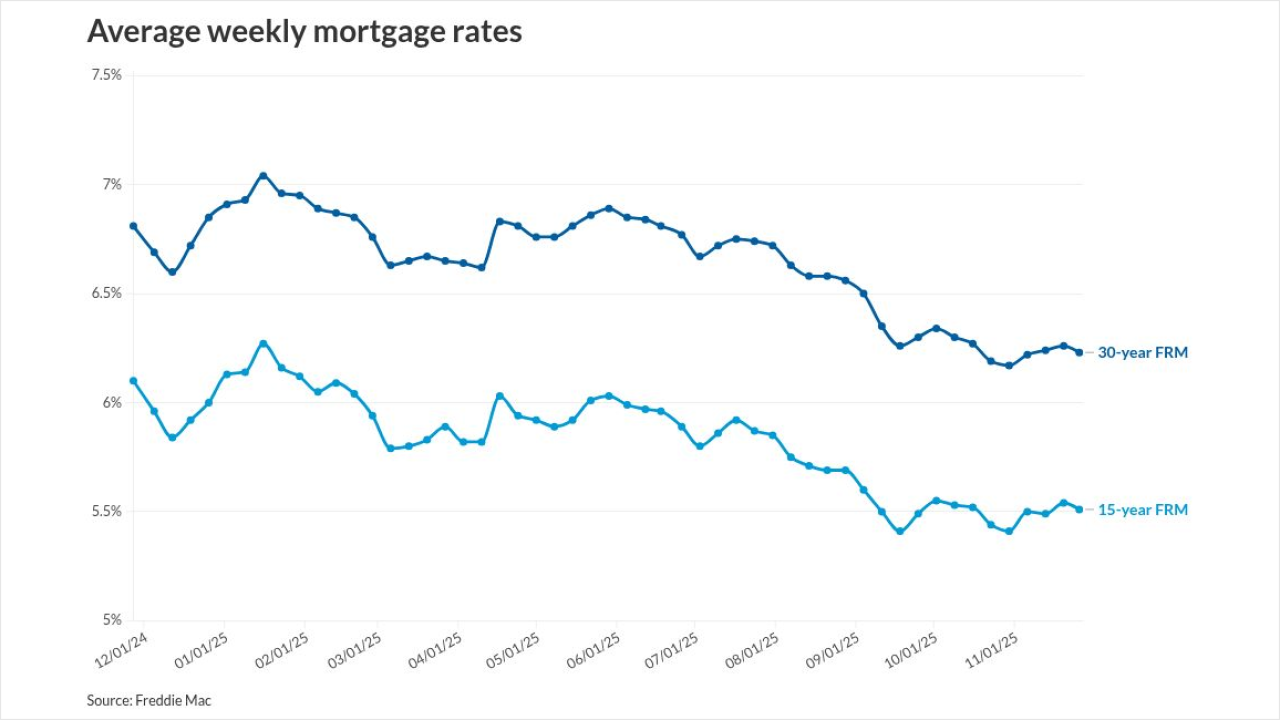The U.S. is taking steps to stamp out the practice of servicemembers and veterans being pressured into taking mortgages they don't need, a move that officials say will lower consumer costs and could lead to financial penalties for lenders.
The actions, which were announced Thursday, stem from a probe by Ginnie Mae, a government-owned corporation that guarantees payment on $2 trillion-worth of mortgage-backed securities. Its bonds include loans made through the Department of Veterans Affairs as well as other federal programs meant for low-wealth or rural borrowers.
In September, Ginnie said it found that lenders had been hounding veterans into refinancing loans over and over, a practice that can drive up a homeowners' debt while generating profit for the lender. Sen. Elizabeth Warren, the Massachusetts Democrat, and other lawmakers called on Ginnie to find a way to stop the practice, which is known as churning.
Ginnie's changes, meant to address those concerns, could have a big impact on fast-growing mortgage firms that have made a specialty in lending to vets. Those lenders include Freedom Mortgage Co. and NewDay USA, which issue the vast majority of the loans with rates that are more than a percentage point and a half above the rest of the market, according to Ginnie Mae data.
According to public records, Freedom and NewDay refinanced the home of one borrower seven times in two years between 2014 and 2016. Four of those refinances were performed by Freedom. NewDay followed with two more, and the final refinance came from a different lender.
NewDay specializes in cash-out refinances for veterans who want to take out money for purposes like consolidating debt. Its rates on most of those loans are above those of other lenders.

Freedom Chief Executive Officer Stanley Middleman acknowledged that his company refinances some borrowers quickly but said the company doesn't charge fees to those borrowers and only uses the practice because it's afraid other lenders will perform the refinance instead.
"We are really aligned with wanting the investor to be happy and really aligned with wanting the customer to be happy, just not at our expense," Middleman said. "If we're vulnerable, we're going to have to defend ourselves."
Thursday's changes will restrict how often a lender is allowed to put a mortgage to a particular borrower in a Ginnie-backed bond. Last year, Ginnie imposed a six-month moratorium, but allowed exceptions for certain kinds of mortgages. Starting in April, there won't be any exceptions, Ginnie said.
The agency said it will also start to more closely track how quickly certain lenders refinance borrowers and what rates they charge. If a lender's mortgages refinance extremely quickly or if they charge rates that are more than 1.5 percentage points above the market, they may face penalties.
The bonds the lenders issue would carry a designation flagging to investors that they are more prone to rapid refinances. That scarlet letter would likely hurt the price the lender could get for the bonds, lowering their profits and making it harder for them to offer competitive rates.
"It makes me sick that predatory lending behavior is back and particularly sick that it's focused on veterans," Bright said.




